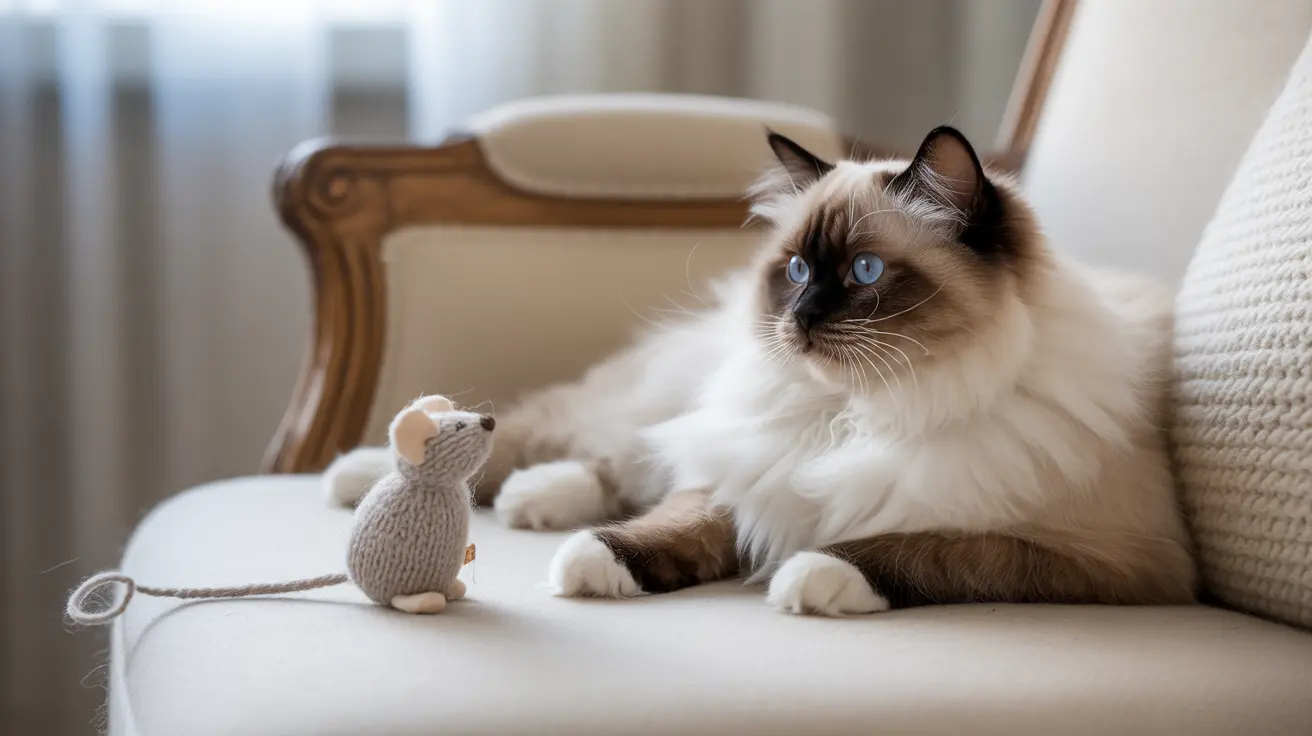If you've ever caught a whiff of corn chips when snuggling with your feline friend, you're not imagining things. The phenomenon known as "Frito feet" isn't just limited to dogs – cats can develop this distinct corn chip odor too. While less common in cats than their canine counterparts, this peculiar scent has a scientific explanation and usually isn't cause for concern.
Understanding why your cat smells like Fritos can help you determine whether it's a normal occurrence or if it requires attention. Let's explore the science behind this interesting phenomenon and learn when you should take action.
The Science Behind Your Cat's Corn Chip Scent
The distinctive Frito-like smell primarily comes from naturally occurring bacteria on your cat's paws, specifically Pseudomonas and Proteus bacteria. These microorganisms are typically harmless and actually play a role in your cat's skin microbiome. When these bacteria metabolize dead skin cells and sweat, they produce volatile organic compounds that create that familiar corn chip aroma.
Common Causes of Frito Feet in Cats
Natural Bacterial Growth
Your cat's paws provide an ideal environment for certain bacteria to thrive. The warm, slightly moist conditions between toe pads create perfect conditions for bacterial growth. This is especially true for cats who spend time in litterboxes or outdoor environments where bacteria are abundant.
Grooming Habits and Bacterial Transfer
Cats are meticulous groomers, and their saliva contains its own bacterial colonies. When they clean their paws, they may inadvertently transfer additional bacteria to their feet, contributing to the Frito smell. This process is completely natural and usually harmless.
When to Be Concerned
Signs of Potential Problems
While some level of Frito smell can be normal, certain signs warrant attention:
- Excessive paw licking or chewing
- Redness or swelling between paw pads
- Visible sores or discharge
- Strong, overwhelming odor that develops suddenly
Prevention and Management Strategies
Regular Paw Care
To minimize the Frito feet phenomenon, consider these management techniques:
- Keep paw pads clean and dry
- Regularly inspect between toes for debris
- Maintain a clean litter box
- Consider periodic paw wipes with pet-safe cleaners
Environmental Control
Managing your cat's environment can help control bacterial growth:
- Keep floors and surfaces clean
- Reduce humidity in your home
- Provide clean, dry sleeping areas
- Maintain proper ventilation in litter box areas
Frequently Asked Questions
Why does my cat's paws smell like Fritos or corn chips?
This smell occurs due to natural bacteria (Pseudomonas and Proteus) living on your cat's paws. These bacteria produce metabolic byproducts that create a corn chip-like scent when they break down proteins and oils on the skin.
What causes the Frito feet smell in cats compared to dogs?
While the underlying cause (bacteria) is the same, cats typically have less pronounced Frito feet than dogs because they're usually indoor pets and groom more frequently. Dogs tend to have stronger odors due to more outdoor exposure and sweating through their paws.
How can I tell if my cat's paw smell is a sign of infection or just normal bacteria?
Normal Frito smell should be mild and not accompanied by other symptoms. If you notice redness, swelling, discharge, or your cat showing signs of discomfort, these could indicate an infection requiring veterinary attention.
What should I do to prevent or reduce the Frito feet odor in my cat?
Maintain good paw hygiene by keeping paws clean and dry, ensuring a clean environment, and regular monitoring. If the smell becomes excessive, consult with your veterinarian for appropriate cleaning solutions and advice.
Can allergies or grooming habits make my cat's paws smell like Fritos?
Yes, allergies can lead to increased paw licking, which may intensify the Frito smell due to added moisture and bacteria from saliva. Excessive grooming can also contribute to bacterial growth and stronger odors.
Final Thoughts
While the Frito feet phenomenon might seem unusual, it's typically just another quirky aspect of cat ownership. By understanding its causes and monitoring your cat's paw health, you can ensure this common occurrence doesn't develop into anything more serious. Remember to consult your veterinarian if you notice any concerning changes in your cat's paw odor or condition.






